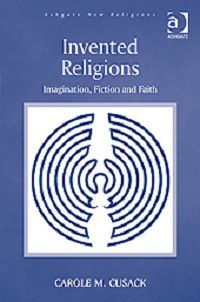Invented religions: this fiction is so good it should be true!
DOI:
https://doi.org/10.22029/ko.2014.817Abstract
Utilizing contemporary scholarhip on secularization, individualism, and consumer capitalism, Invented Religions: Imagination, Fiction and Faith by Carole Cusack analyses six new religions created from 1957 to 2005: Discordianism, The Church of All Worlds, The Church of the SubGenius, Jediism, Matrixism, and the Church of the Flying Spaghetti Monster. In many ways, it is an original and enjoyable work that sheds light on the richly imagined worlds of six invented religions that most people know little about. This interdiciplinary book introduces the concept of 'invented religions', questions religious legitimacy, and discusses religious creativity, its relations to humour and story-telling. Despite being culturally viable and popular, scholars investigating religious phenomena have long dismissed these groups as jokes, since they don't fit the well-established typologies. Cusack's empirical exploration of creative bricolage seeks to broaden the understanding of religion and argues for the right of invented religions to be taken seriously as significant (counter)cultural innovators formulating influential narratives about the nature of reality

Downloads
Veröffentlicht
Ausgabe
Rubrik
Lizenz
Alle Beiträge (nicht die Buchcover) in KULT_online seit der 50. Ausgabe erscheinen unter der Lizenz Creative Commons Namensnennung 4.0. Die veröffentlichten Beiträge dürfen Sie unter den Bedingungen der Lizenz frei nutzen, insbesondere auch für kommerzielle Zwecke und durch Bearbeitung der Beiträge (allgemeinverständliche Fassung). Die Autor_innen von KULT_online haben der Zeitschrift die Veröffentlichung erlaubt und ihre Texte unter einer CC-BY-Lizenz veröffentlicht. Es findet keine exklusive Übertragung von Verwertungsrechten („copyright transfer“) an die Zeitschrift statt. Für die Buchcover gelten die urheberrechtlichen Bestimmungen des Verlages, bitte kontaktieren Sie das Verlagshaus für jede rechtmäßige Weiternutzung. Alle Beiträge der Ausgaben 1-49 sind online frei zugänglich und unterliegen den Nutzungsbeschränkungen gemäß des deutschen Urheberrechts



